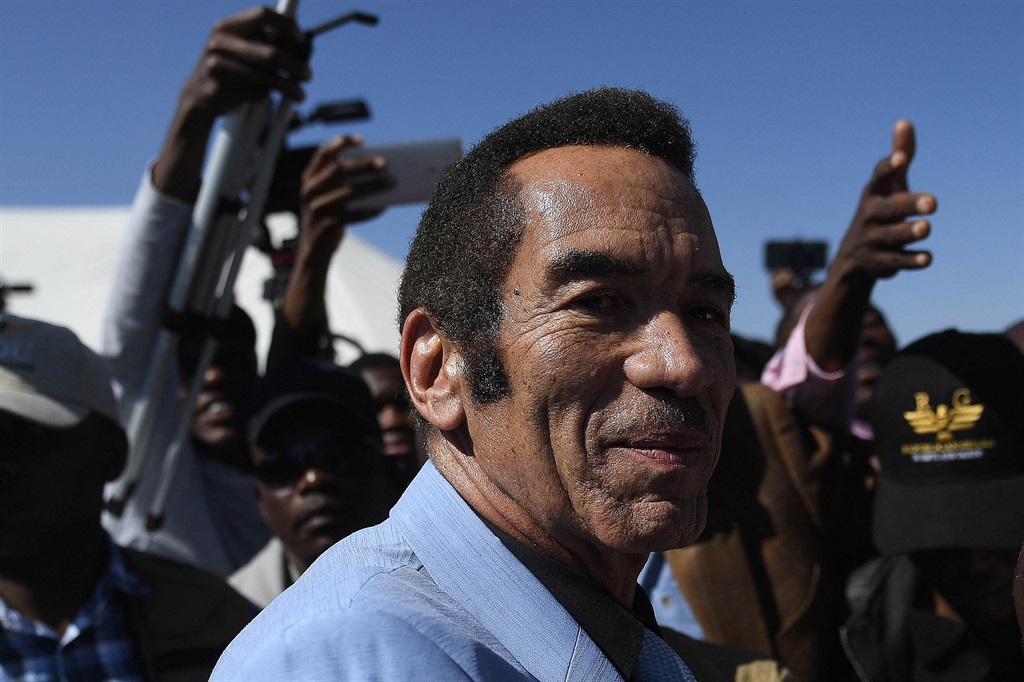

From president to “fugitive from justice” – Ian Khama has approached Botswana’s courts in a bid to remove his uncle as the acting regent of the Bagammangwato tribe and appoint his cousin instead. (AFP/Monirul Bhuiyan)
- Botswana’s minister of local government
says former president Ian Khama can’t approach the courts because he’s a
fugitive. - Khama is trying to install his cousin, Peter
Khama, as the chief of the tribe he’s headed since 1979. - Khama argues that he is the chief
of Bagammangwato and is, therefore, entitled to select someone to act
in his stead.
Former Botswana president Ian Khama has been branded a “fugitive
from justice” who is approaching the courts with “unclean hands”
by that country’s minister of local government and rural development.
Since last year, the former president has been pushing for the removal
of his uncle, Serogola Seretse, as the acting motshwarelela bogosi (regent)
of the Bagammangwato tribe to make his cousin, Peter Khama, the tribal chief.
Seretse has been the chief since the expulsion of Sediegeng Kgamane in
2022.
The matter is now in the courts, with the former head of state declaring
that, as the designated and recognised chief through a process conducted on 5
May 1979, he has the right to choose his successor.
Khama has been living in exile since 2022. He’s understood to be in
Eswatini, having moved from South Africa last year. He wants to install Peter
because he cannot execute his duties since he’s out of the country.
The former president has said:
Although I am the recognised kgosi (chief) of the Bagammangwato tribe, I am, at the moment, unable to take up the functions of that office.
According to the Bogosi Act of 2008, Khama has the right to choose who
should act in his stead, as long as they are from the royal family, both
nuclear and extended.
In his opposing court papers, Local Government Minister Kgotla Autlwetse
said Khama had been a fugitive since 24 February 2024 and was, therefore, “not entitled to invoke processes of the courts in Botswana”.
He argued that Khama was “approaching this honourable court with
unclean hands, and the court cannot be seen to be conniving with/and or
condoning” his conduct.
Autlwetse also said Khama was not properly instituted as tribal chief in
1979 because the government of the time failed to gazette his recognition.
“It shall be argued that the first applicant (Khama) has, in fact,
never been validly recognised as a chief of the Bagammangwato tribe,” the
minister said.
The News24 Africa Desk is supported by the Hanns Seidel Foundation. The stories produced through the Africa Desk and the opinions and statements that may be contained herein do not reflect those of the Hanns Seidel Foundation.
